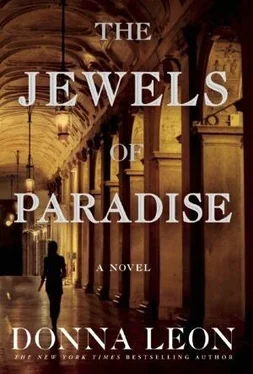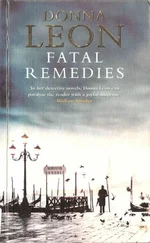When she emerged from the second of these, hunger drove her from the library and to the nearest bar, where she had two sandwiches and a glass of water before returning—unquestioned and unexamined—to her place in the library.
The next book was a 1905 edition of the correspondence between Sophie Charlotte and Steffani, in French, which both of them wrote with ease and grace. One of his letters found him at a low ebb. “The bitter grief I suffer because of the affairs of the world; the pain I suffer in seeing so many people whom I respect wishing to destroy themselves entirely.” He wrote of leading a life “that is truly a burden” and of his “unlimited hypochondria.” He described a life in which his only friend and source of safety was his harpsichord. It seemed to Caterina that, after saying all of this, he suddenly realized he had to try to joke his way out of the truth he had revealed, but the tone did not ring true to Caterina. What did ring true was the ease with which he addressed the recipient. She hoped the queen had accepted it because of his musical gifts rather than for his clerical position. Or was it the unspoken awareness that he was a castrato that rendered his liberties harmless?
She continued reading the letters, trying to think of them as the performance of a person whom fate had moved up the social ladder but who remained aware, no matter how high he rose, of just how precarious his position was. Seen in this light, a new tone became audible in his prose. She noted the excessive gratitude he poured upon Sophie Charlotte for the simplest favor, the flattery that sometimes became overwhelming: “since you have power over all”; “the graces that your Majesty deigned to bestow upon me”; “the letter with which your Majesty honored me”; “Your Majesty cannot do anything that is not at the peak of perfection”; “I have the pleasure of serving your Majesty.”
At this point, Caterina told herself to bear in mind that Steffani was corresponding with the Queen of Prussia, a woman renowned throughout Europe for the depth and breadth of her learning. Caterina remembered the palace in Berlin named for her and the enormous, passionate support she gave to countless musicians. This thought was enough to dispel her last opposition to Steffani’s deference to her. “Narrow-minded liberal,” she whispered in self-accusation.
But still, but still, she was filled with the desire to take Steffani and shake him by the dangling ends of his alb and tell him that, three hundred years later, Sophie Charlotte had been remaindered to footnotes in histories of Prussia read by a few hundred people, while his music was still performed and admired. “Narrow-minded snob,” she whispered to herself this time.
“THE TROUBLES OF THIS CENTURY NO LONGER CAUSE ME MUCH pain because they are making you again turn your hand to music. Throw yourself in headlong, I implore you. Music is a friend who will not abandon or betray you, nor will she be cruel to you. You have drawn from her all the delight and beauties of the heavens, whereas friends are tepid and cunning and mistresses are without gratitude.” This was the answer Steffani received from the queen in response to his own troubled letter. Her words rose above the usual courtly language and revealed her heart. Caterina felt her own heart warm to learn that he should have had this gracious, generous support from a woman he admired so fully.
Nevertheless, within months, the correspondence was dead. Steffani, in response to a request from a Medici cardinal, implored the queen to change her decision not to allow her favorite court musician to return to his monastery in Italy. And she, in queenly fashion, was not amused. The correspondence ended, but not before Leibniz, that most savvy of philosophers, remarked to a friend that he understood Her Majesty’s anger. “After all, if a Duke had only one hunting horse, and someone requested him to give it up, how else would he expect the Duke to respond than with anger?”
Well, Caterina thought, old Leibniz certainly had no illusions about describing the pecking order in a royal court, did he? And he’d certainly hung around enough of them to have learned a thing or two about the positions of musicians, and let’s forget all the flowery praise. Steffani’s bishopric hadn’t protected him one whit, not when he stepped over that invisible line. You’re a genius and I am enthralled by the beauty of your music, but just remember to stay in your proper place, and don’t think for an instant that you can question the decisions of the Queen of Prussia.
She looked at her watch and saw that it was after six, which gave her just barely enough time to get back to the Foundation and write a report to Dottor Moretti. Because she knew that she was going to be out to dinner that evening, she did not bother to take any of the books with her and left them where they were, planning to return the next day to continue reading the background material.
She got to the office before seven but found no sign of Roseanna. She went up to what had become her office, but she did not open the storeroom. Instead, she turned on the computer and gave her name and password to the server. There were three emails, but before so much as glancing at the names of the senders, she opened a blank mail, headed it to Andrea, but, addressing the cousins by their surnames, gave a hurried account of the results of her research that day. Without bothering to read it over, she sent it off and returned to her inbox.
The first mail arrived from a bank she had never heard of and inquired if she wanted to take out a loan. Delete.
The second came from a young Russian woman, twenty-four, with a doctorate in electrical engineering, hoping to begin a meaningful correspondence with a well-educated and well-bred Italian man. Resisting the temptation to forward it to Avvocato Moretti, she deleted it.
The last was from Cristina, sent early that afternoon. “You studied law, Cati, and it wasn’t so very long ago, so surely you remember what those legal people call a statute of limitations on wills. Any unclaimed bequest Steffani might have made lapsed centuries ago. If there turns out to be something of value among those papers, it in no way belongs to the egregious cousins but, alas, to our even more egregious State.
“I don’t have any idea of what sort of people you’re mixed up with. The non-heirs sound unpleasant, at least to someone who has been out of the city for as long as I have and thus isn’t exposed to the daily discourse of men like them. Surely their lawyer must know this common legal fact, which makes me wonder what he’s up to. I don’t want to say anything unpleasant about him in case he’s the lawyer you’re going out to dinner with, but, if it is he, he should have known a fact as basic as this.
“If you have no luck with him, and if you can tell me exactly where the trunks were in Rome—that is, what bureau or office had them—I might be able to do a bit of trekking through the muck for you and find out how they were released. I still have a number of friends there who believe that the discovery of truth begins with an accurate account of verifiable events and is not an elaborate progress toward some predetermined truth. Besides, I’m curious.
“Thanks for your offer of hospitality. If I decide to bolt, it’s the first place I’d go, believe me. Love, Tina-Lina.”
The clock on the computer desktop told her it was 7:15 and so, without planning what to say, Caterina hit “respond.”
“Dear Tina. The trunks were in the care/possession of the Propaganda Fide, as sinister a name as your lot could come up with short of KGB or CIA. I was told that someone who was doing an inventory found the trunks. His research probably found the names of the original cousins and he looked for people with the same surnames in the area about Castelfranco and got in touch with them. That’s certainly what I or any other researcher would do, but this is only a guess, not a certainty.
Читать дальше












